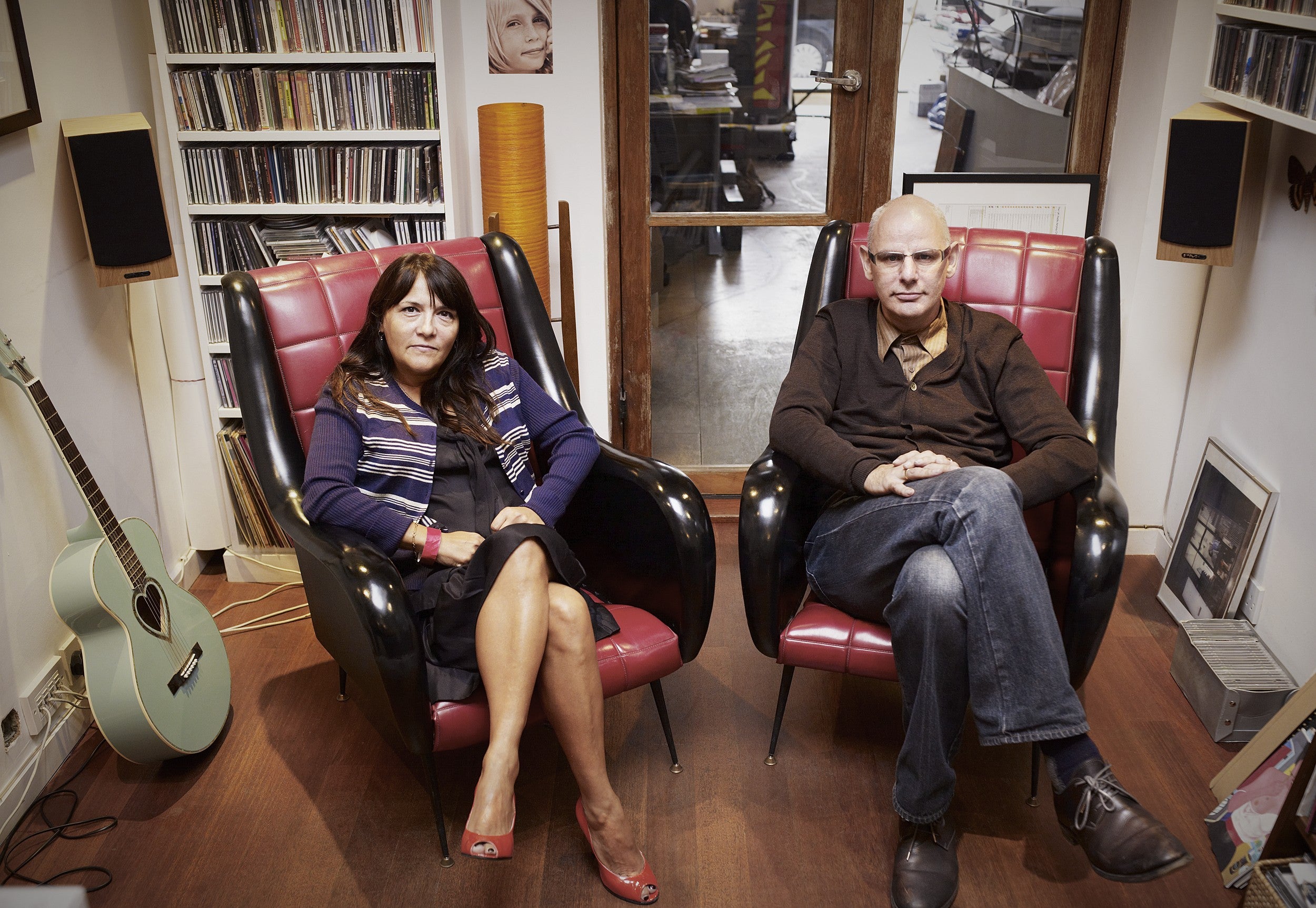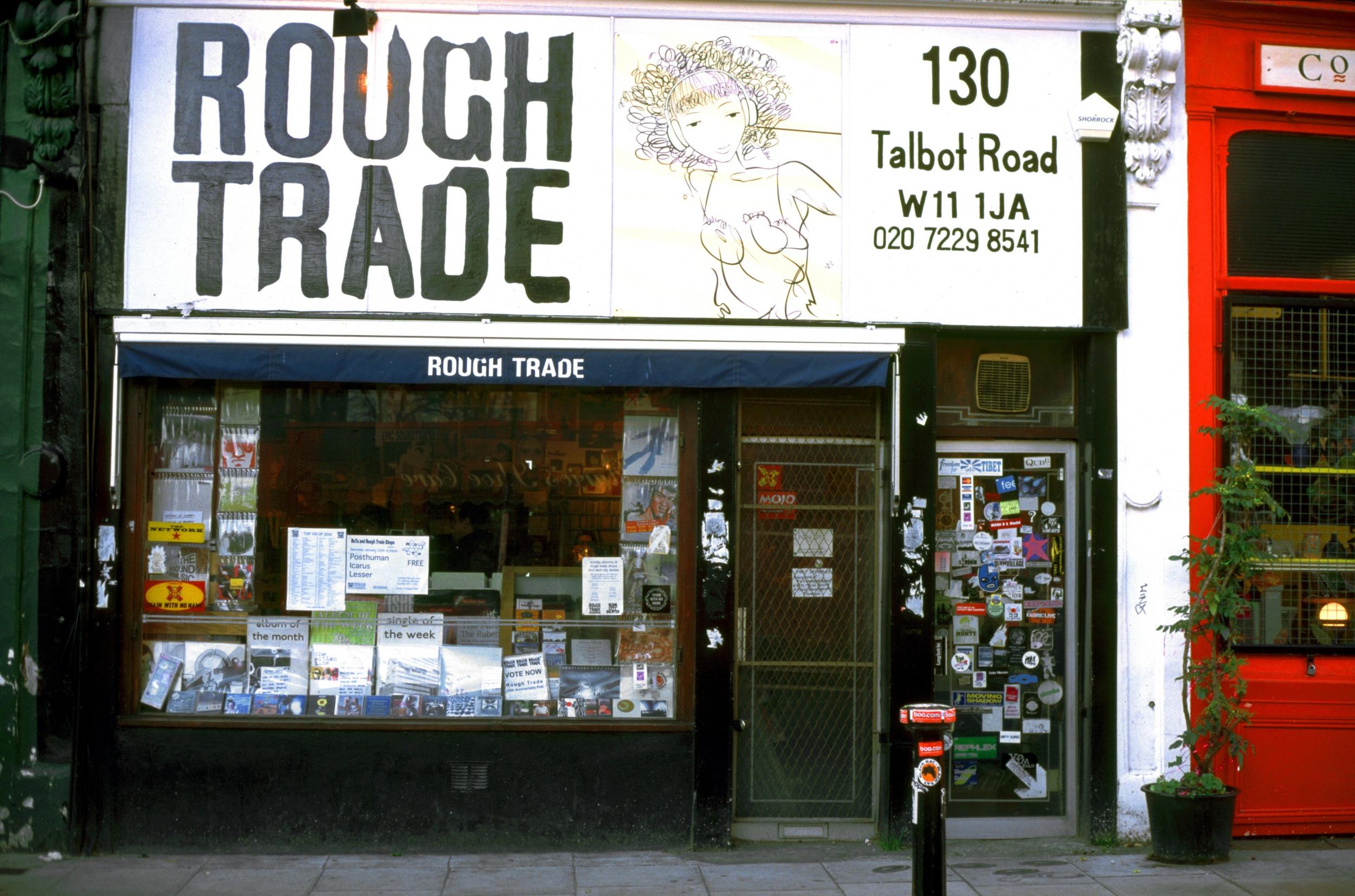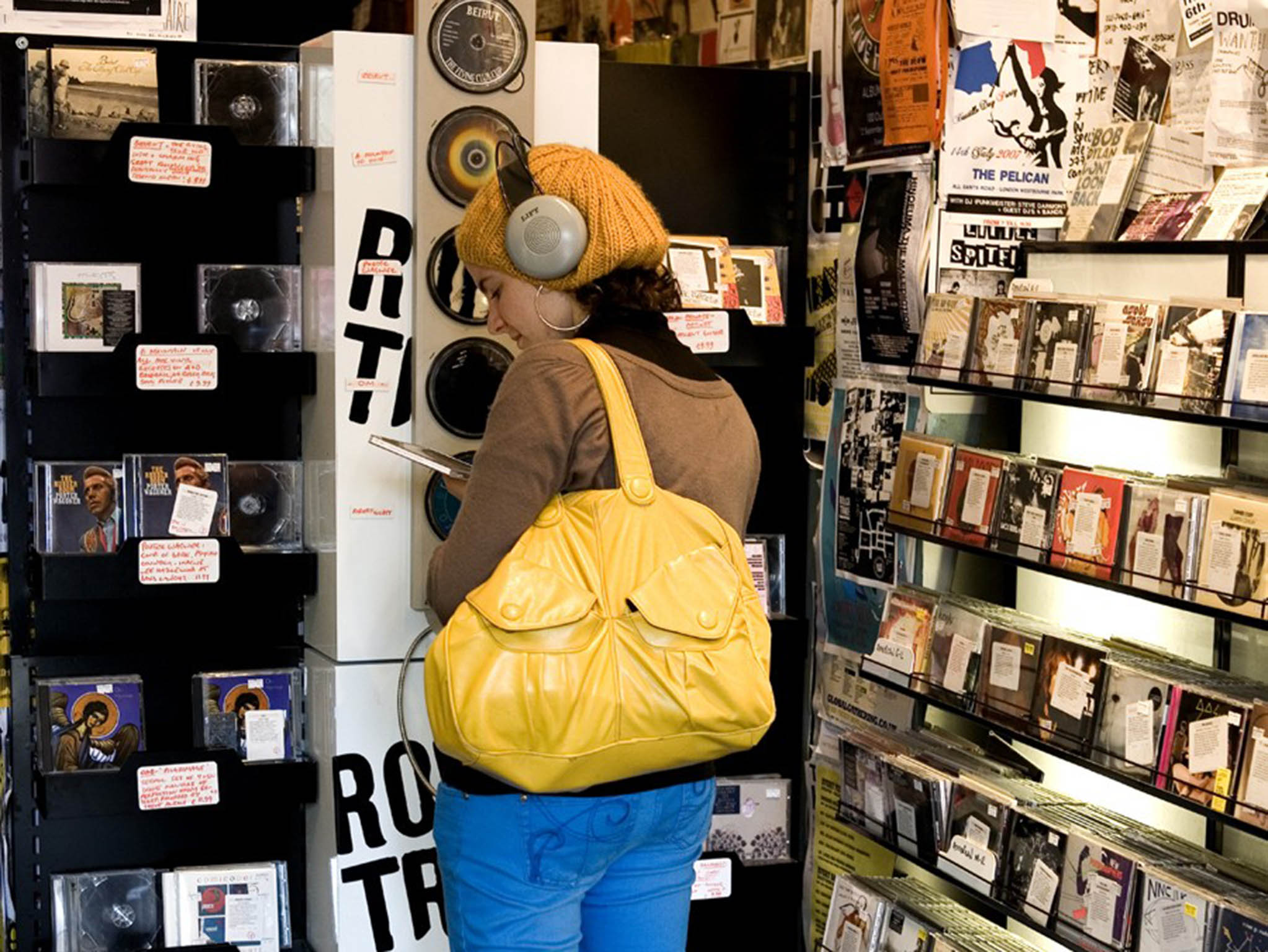Geoff Travis interview: Rough Trade founder reveals he still has some big regrets despite his huge success
Rough Trade, now celebrating its 40th birthday, founder recalls David Bowie buying music in his shop and signing the Smiths, The Strokes and The Libertines.

Of all the outpouringsof grief that came in the wake of David Bowie’s sad passing, one didn’t come from a friend or collaborator, but a record shop.
Rough Trade announced that it would donate all profits from sales of David Bowie records in the month of January to Cancer Research. This came just in advance of a major milestone in the retailer’s history, the record shop’s first day of trading back in February 1976.
“It wasn’t that big of a deal opening the shop on the first day because nobody came,” laughs Rough Trade founder Geoff Travis, “it was literally just an empty shop,” he recalls, looking back as the shop (since relocated) celebrates its 40th year.
Opening the shop on Kensington Park Road was a spontaneous move after an trip to the USA inspired him.
The idea behind the shop was straightforward. “We just wanted to have a place to go where we could hear the music we loved... That’s the dream job.” Despite a slow start, Rough Trade’s reputation began to grow. “The whole idea was for people to hang around, there was no pressure to buy anything.
It was meant to be the opposite of a Wimpy Bar with those fixed plastic seats that made you want to leave after 10 minutes. I didn’t mind people staying as long as they weren’t too tramp-y or too violent.
“It could get heavy sometimes. In its heyday the shop would get so packed that we actually had to have a bouncer on the door to stop people coming in. We had these huge speakers pumping out music and you couldn’t really hear what people wanted to buy.”
Travis recalls Bowie being an early visitor. “He didn’t actually come up to the counter, he sent his minder, but it was exciting, he was keeping up to date, which we were impressed by, buying records like The Normal, Robert Rental, and Cabaret Voltaire.”
Soon a distribution network with other shops was set up, and by 1978 Rough Trade had turned into a record label too, releasing alternative music by Cabaret Voltaire, Stiff Little Fingers and Scritti Politti all within its first year as a label. “It wasn’t as if we were burning with ambition at that point,” says Travis, “it just seemed like an obvious thing to do.”
Over the years there would be a few misses that Travis looks back on with some sense of regret (“It was a real disappointment for The Clash to sign with CBS... We tried to sign Prince...”) but overall the catalogue of the Rough Trade that grew from the late Seventies and into the Eighties laid foundations for alternative music the world over: The Fall, Young Marble Giants, The Slits, The Raincoats, The Go-Betweens and The Smiths are just some of the Rough Trade-released artists now synonymous with groundbreaking music.
Robert Wyatt recalls his time on the label fondly. “I didn’t know what the word ‘indie’ meant. I thought it referred to Indian music. It never occurred to me that there was such a thing as an independent record label.” He says he was “stuck with Virgin records” and “in the wilderness” until the music journalist Vivien Goldman introduced him to Travis. “Those people changed my life, quite frankly. Without them I couldn’t have made a living in this business.”

In 1991 the label went bankrupt, losing its catalogue. It relaunched in 2000 and, in the interim, had set up a successful management company, looking after groups such as Pulp and The Cranberries, aided greatly by the 1987 addition of Rough Trade partner Jeannette Lee, who had previous managerial experience with Public Image Ltd.
“We thought it was over,” says Travis. But they came back armed with youth-culture-phenomena signings The Strokes and The Libertines.
“I can’t even begin to tell you how thrilling it was to go and see [The Libertines] and hear their stuff for the first time,” says Lee, of Carl Barât and Pete Doherty’s infamous group. “Looking back on the impact that they had on that generation is very satisfying.”
Alongside signings such as Arcade Fire, Sufjan Stevens, Antony and the Johnsons, and British Sea Power, Lee recalls the period as “a little peak, a spike”. Yan Scott Wilkinson of British Sea Power recalls: “They were our No 1 choice [of label]. To be honest it was all like a dream come true and we were over the moon with the whole thing.”
It was these sorts of signings that would revitalise the label, as Dorian Cox of The Long Blondes (who signed to Rough Trade in 2006) recalls: “Obviously we were hugely influenced by The Smiths and a particularly fertile period of The Fall but we also loved British Sea Power, whose debut was, and is, one of the best LPs of any era.

"These were bands that people would have tattoos of and we wanted that level of obsession. We met a lot of A&R men who seemed to just be doing a job as opposed to being obsessed with music. When we met Geoff and Jeannette it was obvious they lived for new music.”
Kay Kasparhauser, of new signing The Prettiots, says: “It’s impossible to ignore their consistent impact on alternative and indie music since they began. There wouldn’t be as much space for our music today had they not cleared that path. After our first face-to-face meeting with Geoff, the choice was clear.”
Travis and Lee clearly have synchronised tastes. When speaking of Irish noise outfit, Girl Band, whom they signed last year, they both agree the band’s live shows were their favourite gigs of 2015.
Lee and Travis’s mutual love of live music was born through early exposure to punk, of seeing the Sex Pistols and The Clash live. “I never looked back,” Lee says fondly. “Before that, something was missing for me, I was always into music but that was the moment it felt like your thing, there was a connection. It was incredibly liberating.”
“We feed each other’s obsessions,” she adds. “The music doesn’t have to fit into a category, the only category is: it’s great.”
As the shop celebrates 40 years, it’s expanding, with recent openings in New York and Nottingham. The shop’s physical expansion in an increasingly digital world is unusual, if not unheard of.
Nigel House, of Rough Trade Retail, says: “We have to make actually coming into our shops exciting... The vinyl resurgence has brought a new generation of customers. Buying online may be easy but you don’t get that same thrill of finding something unusual or chatting about a show.”
The shops increasingly hold live gigs too. “Fans love these in-stores, as do the acts – add to that a bar, cafe, free wi-fi and they are pretty cool places to go and hang out,” Lee says.
The label’s ambition matches that of the shops, with a huge 2016 planned, including releases from Anohni (formerly Antony Hegarty of Antony and the Johnsons), new signings Josienne Clarke and Ben Walker (whom Travis describes as “think Sandy Denny and Burt Jansch”), and some “wildcards that you wouldn’t expect Rough Trade to do,” says Travis.
“The mentality hasn’t changed from day one, we just do what the hell we like.”
Join our commenting forum
Join thought-provoking conversations, follow other Independent readers and see their replies
Comments
Bookmark popover
Removed from bookmarks